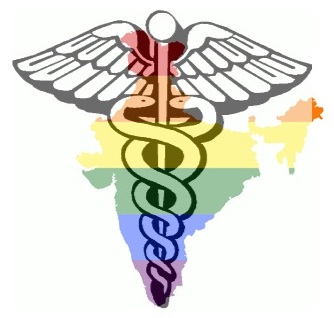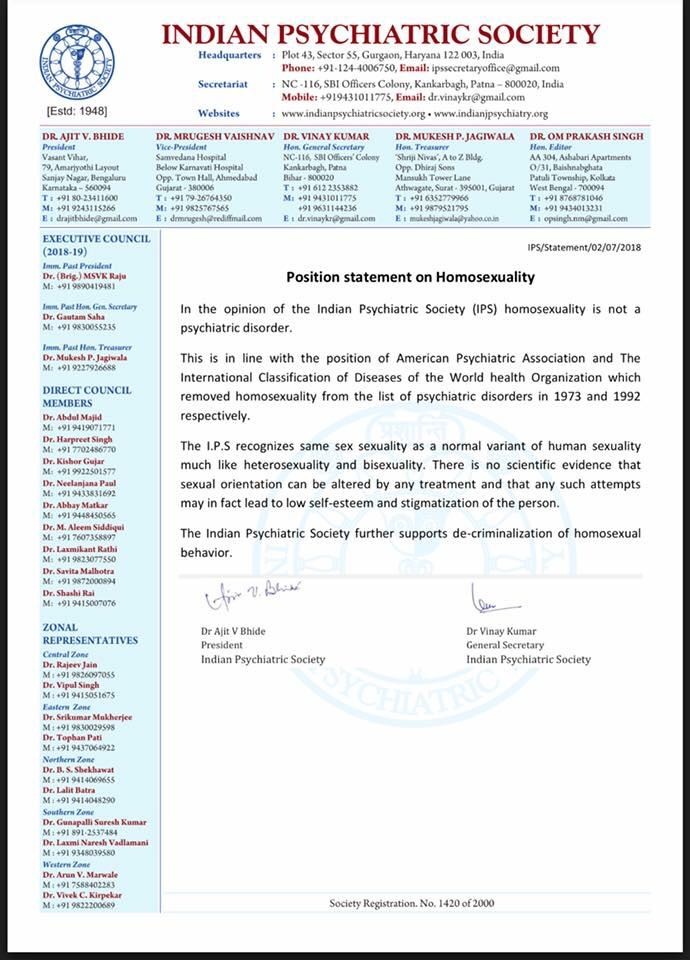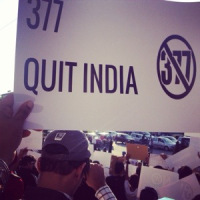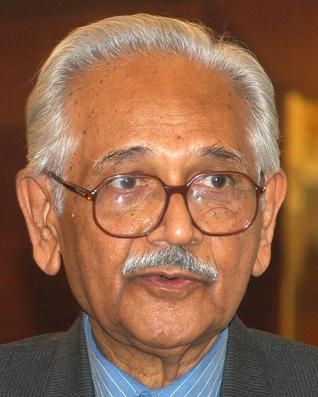Indian Psychiatric Society reiterates need for decriminalisation of homosexuality


India’s apex professional body of psychiatrists, the Indian Psychiatric Society (IPS), has once again registered its support for decriminalisation of homosexuality. The press statement, dated July 2, 2018, is timed in support of the Supreme Court hearings challenging the constitutionality of Section 377, scheduled to begin on July 10, 2018.
In January 2014, shortly after the Supreme Court’ in Koushal (11/12/13) reversed Delhi High Court’s Naz Foundation verdict of 2009, the IPS made its first statement (Rao and Jacob, 2014) supporting decriminalisation in an editorial of its official journal, the Indian Journal of Psychiatry. In a stinging critique of the Koushal verdict, editors Dr. T. S. Sathyanarayana Rao (JSS Medical College, Mysore) and Dr. K.S. Jacob (Christian Medical College, Vellore) wrote:
“The judgment goes against the grain of the Supreme Court’s own jurisprudence on advancement of fundamental rights and freedoms of all people, especially those who face marginalization in society… There is a need to seek an interim stay on the operation of the judgment, as the judgment has caused immense prejudice to all adult persons who engage in consensual sex. This is particularly true for those from the Lesbian, Gay, Bisexual and Transgender (LGBT) community who had become open about their sexual identity since the High Court judgment and are now at risk of prosecution under criminal law.”
They concluded:
“It is also time for social groups and professional associations to clearly state their positions and demand a review of the flawed verdict. The Indian government and its Parliament now have an opportunity to leave a lasting legacy of progress and should act immediately to seek a repeal of Section 377. The 19th century law has no place in a 21st century democracy.” – Rao and Jacob 2014.
In 2016, Rao et al. (2016) called out the mental health establishment for their weak response to the Koushal verdict:
“…India’s Supreme Court issued a ruling against human rights by reinstating the law that bans gay sex in 2013. The response from mental health and legal establishment to this manifest bigotry was weak. The hesitancy of the establishment to clearly support LGBT rights exposes their subscription to prevailing societal prejudices.”
They went on to repeat their call for decriminalization:
“Medical and legal fraternities should support the need to decriminalize same–sex orientation and behavior and to recognize LGBT rights to include human, civil, and political rights. The recognition of people’s humanity also advocates the legal recognition of same-sex relationships, anti-bullying legislation, anti-discrimination laws in employment and housing, immigration equality, law for an equal age of consent and laws against hate crimes, thus providing enhanced criminal penalties for prejudice-motivated behavior and violence against LGBT people”. – Rao et al. 2016.
The July 2, 2018 statement by IPS, issued in anticipation of the Supreme Court hearings scheduled to commence July 10, 2018, are a welcome and timely iteration of its official stance.
Besides the matter of decriminalization, the matter of conversion therapy (attempts to change sexual orientation and gender identity) by psychiatrists and other medical/mental-health professionals in India requires urgent attention. The IPS itself has published articles on “treatment” of homosexuality in its journal (e.g. Sakthivel et al. 1979, Pradhan et al. 1982), through electro-shock therapy and other means. It was not until 2012 that the practice of conversion therapy was questioned (Jacob and Rao 2012, Kalra 2012 ):
“There is no evidence for the effectiveness of sexual conversion therapies.[2,3] Such treatments also raise ethical questions. In fact, there is evidence that such attempts may cause more harm than good, including inducing depression and sexual dysfunction. However, faith-based groups and counsellors pursue such attempts at conversion using yardsticks, which do not meet scientific standards. Clinicians should keep the dictum “first do no harm” in mind. Physicians should provide medical service with compassion and respect for human dignity for all people irrespective of their sexual orientation.” – Rao and Jacob 2012.
Despite such strong statements against conversion therapy, homophobic and ambivalent attitudes continue to be expressed by psychiatrists who are members of the Indian Psychiatric Society: see Dr. Indira Sharma’s statement [responses here] and the interview of Dr. Raju referenced here.
The constitution of IPS’ LGBT Mental Health Task Force in 2017, the meetings in Bhubaneswar (2017), Mumbai (2018) and Delhi (2018), and the media statement by current President Dr. Ajit Bhide, are moves in the right direction.
We hope that IPS will continue on its mission to advance inclusion by taking action against mental health professionals who practise conversion therapy for changing sexual orientation or gender identity, and condemn this unethical and unscientific practice with the same certainty with which they have supported decriminalization, regardless of the outcome of the current constitutional challenge to 377.
References
Kalra G. A psychiatrist’s role in “coming out” process: Context and controversies post-377. Indian J Psychiatry 2012;54:69-72. Available online at http://www.indianjpsychiatry.org/temp/IndianJPsychiatry54169-8323335_230713.pdf
Mehta, S. Looking into minds wired differently. Times News Network; Feb 3, 2014. Online at https://timesofindia.indiatimes.com/city/visakhapatnam/Looking-into-minds-wired-differently/articleshow/29788494.cms?referral=PM
Orinam. Open letter to Dr. Raju, General Secretary, Indian Psychiatric Society. Feb 5, 2014. Online at https://orinam.net/drraju-ips/
Orinam. Letter to World Psychiatric Association: Feb 3, 2014. Online at https://orinam.net/letter-world-psychiatric-association-feb-3-2014/.
Pradhan PV, Ayyar KS, Bagadla VN. Homosexuality: Treatment by Behaviour Modification. Indian J. Psychiatry 1982; 24(1), 80-83 . Available online at http://www.indianjpsychiatry.org/temp/IndianJPsychiatry24180-783487_214548.pdf
Sakthivel LM, Rangaswami K, Jayaraman TN. Treatment of homosexuality by anticipatory avoidance conditioning technique. Indian J Psychiatry 1979;21:146-8. Available online at http://www.indianjpsychiatry.org/temp/IndianJPsychiatry212146-8345459_231054.pdf
Sathyanarayana Rao TS, Jacob KS. Homosexuality and India. Indian J Psychiatry 2012;54:1-3. Available online at http://www.indianjpsychiatry.org/temp/IndianJPsychiatry5411-8150695_223826.pdf
Sathyanarayana Rao TS, Jacob KS. The reversal on Gay Rights in India. Indian J Psychiatry 2014;56:1-2. Available online at http://www.indianjpsychiatry.org/temp/IndianJPsychiatry5611-7294761_201547.pdf
Sathyanarayana Rao TS, Rao GP, Raju M, Saha G, Jagiwala M, Jacob KS. Gay rights, psychiatric fraternity, and India. Indian J Psychiatry 2016;58:241-3. Available online at http://www.indianjpsychiatry.org/temp/IndianJPsychiatry5611-7294761_201547.pdf





One Comment